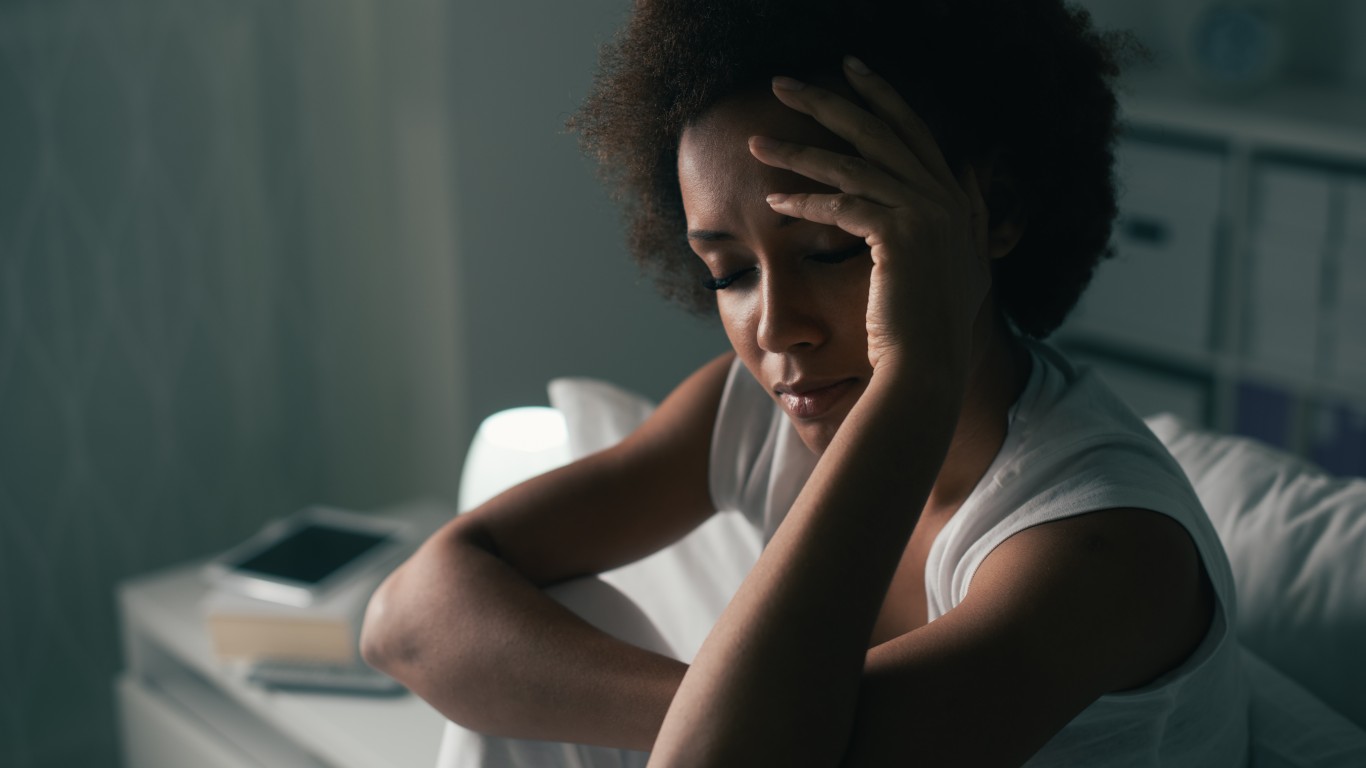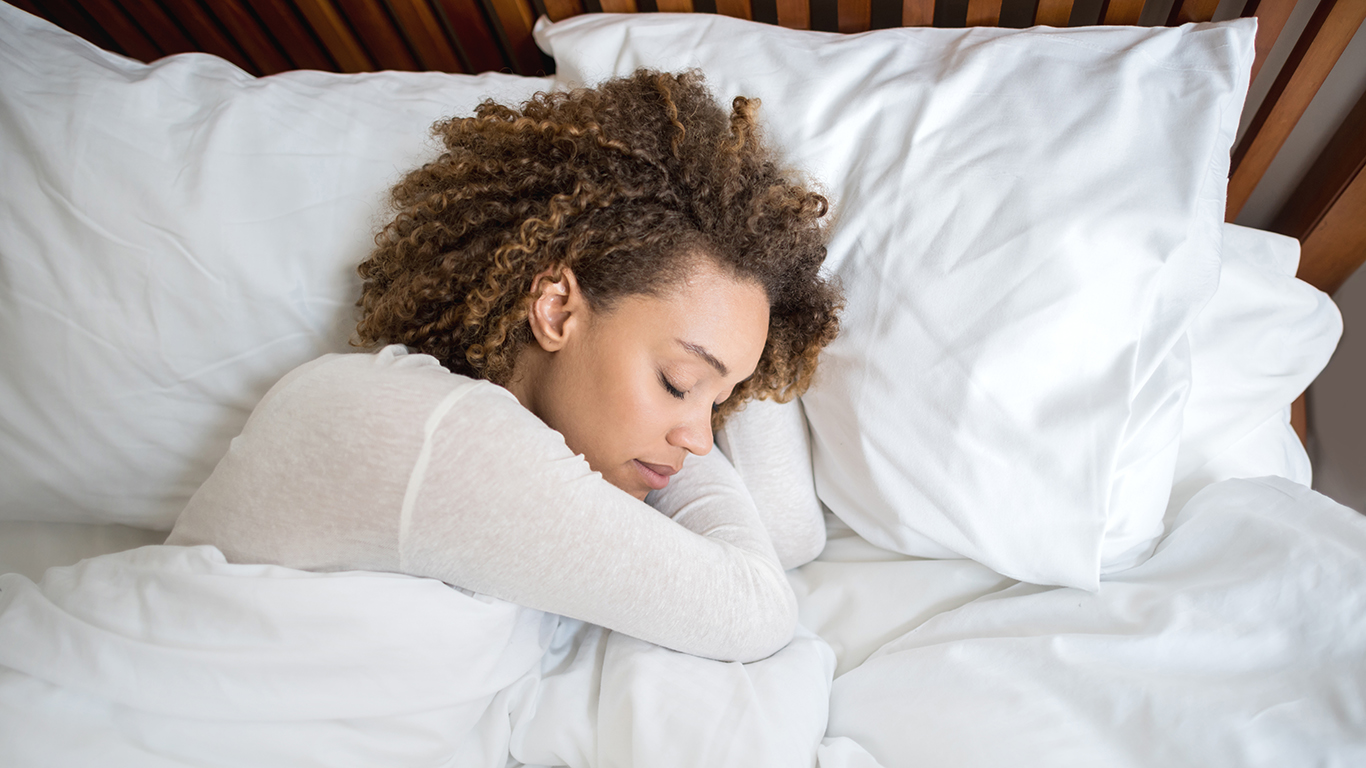
This post may contain links from our sponsors and affiliates, and Flywheel Publishing may receive
compensation for actions taken through them.
If you are having trouble falling or staying asleep, you’re one of three adult Americans who do got enough sleep, according to the Centers for Disease Control and Prevention.
Sleep is a biological need that promotes good health. Not getting enough may lead to numerous negative health outcomes both in the short and long term that range from daytime fatigue to depression to premature aging.
Generally, adults need about seven to nine hours of sleep each night, but everyone has his or her own optimal sleep time. Some people may need 11 hours, while others function just fine with six hours of shuteye at night, Dr. Kent Smith, founder of Sleep Dallas, a dental sleep medicine practice, and president of the American Sleep and Breathing Academy, said.
But the quantity is not all that matters. You can be in bed for 13 hours, but if you wake up every hour or so, you would not be rested at all because you would not have gotten any restful sleep. Sleep quality, also known as “sleep efficiency,” refers to the percentage of time a person is asleep during the night, Smith explained.
One reason so many people have trouble sleeping or do not get enough sleep in the first place is that they do not realize that sleep is part of our natural habitat, Dr. Mayank Shukla, a sleep medicine specialist in New York, explained. “Once we realize how vital sleep is, everything else will fall into place.” The mentality of working nonstop and being connected to other people via social platforms all the time needs to change, Shukla added. Once you have the determination to improve your sleep because you know how crucial it is for overall health, you need to know the tricks that can help achieve a restful night’s sleep.
To identify habits and procedures people can incorporate to hopefully achieve better sleep, 24/7 Tempo consulted several sleep doctors and a clinical psychologist specializing in insomnia treatment, and reviewed dozens of medical studies published online.
Click here to read about what you should do for a better night’s sleep

1. Keep the pets out of your bed
Sleeping with pets is very common. About half of dogs and 62% of cats in the United States sleep in their owner’s beds. But Shukla is advising against the practice. “Make sure no one is disturbing you while you sleep,” he said. “And that includes pets.” While this may be obvious to people with allergies, pets can scratch and get in and out of bed several times, possibly waking you up. In a Mayo Clinic Sleep Disorders Center study, about 53% of people who slept with their pets said their sleep was disturbed in some way.
[in-text-ad]
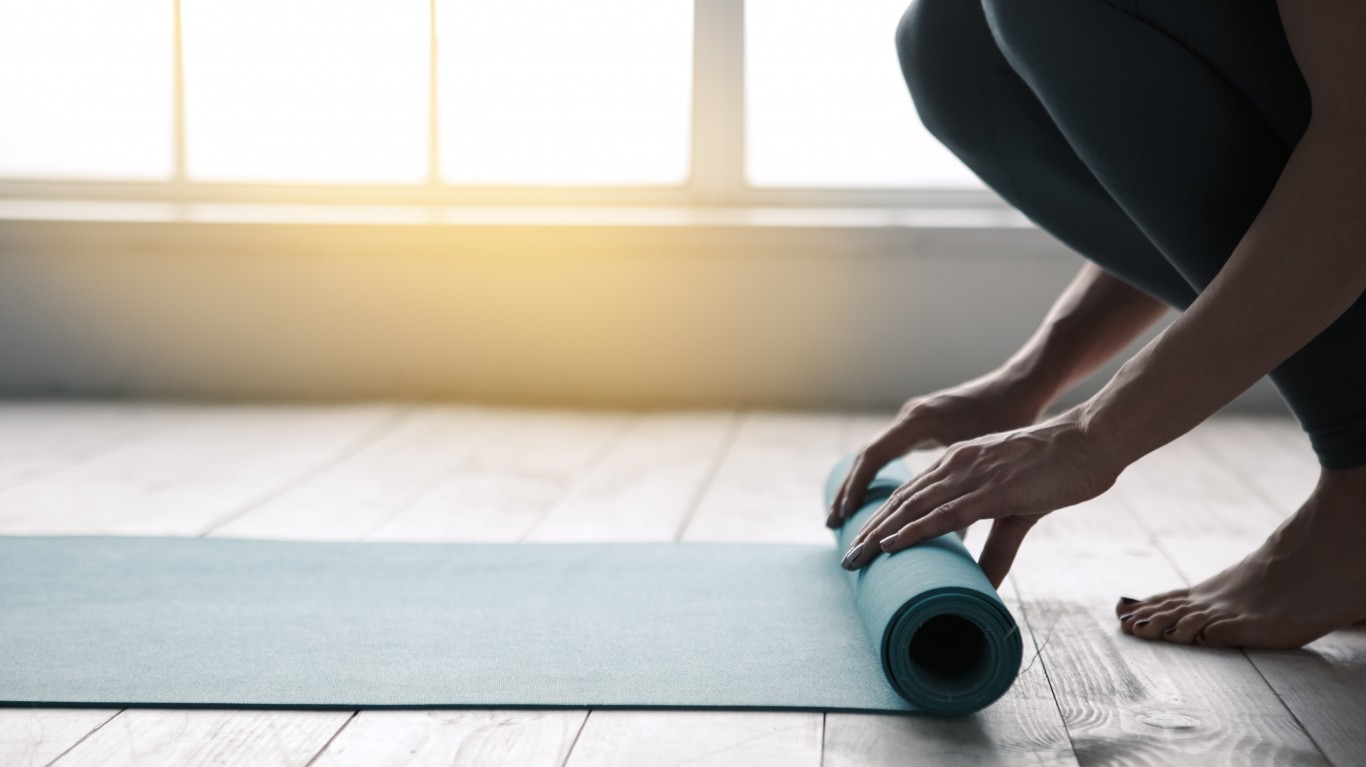
2. Don’t exercise in the evening
Working out, especially doing any aerobic activities, will lead to an elevated level of serotonin, often called “the happy hormone,” in the body. Serotonin, which promotes wakefulness, stimulates the brain, Shukla explained. You end up feeling very energetic. This is the opposite of relaxation, which the body should be experiencing before bed.

3. Avoid caffeine several hours before bed
Caffeine is a stimulant and should be avoided at least four to five hours before bed, according to Dr. Ari Laliotis, a board-certified sleep medicine doctor with Sharp Rees-Stealy Medical Group in California. This includes chocolate and coffee.
“Coffee has a decent half-life,” Dr. Joshua Tal, a psychologist with a specialty in sleep disorders, said. “It stays in the body for 5-6 hours.” He doesn’t recommend having coffee after 3 p.m.
[in-text-ad-2]

4. Make the bedroom cool
“The body is designed to sleep better at cooler temperatures,” Smith said. “In fact, our temperature naturally drops in the evening to prepare us for sleep,” he added. For most people, the optimal sleeping temperature is between 60 and 67 Fahrenheit, according to him.
That is why you should adjust the room temperature accordingly. “A warm room will raise your body temperature, making you uncomfortable, possibly waking you up and affecting your sleep negatively,” Laliotis said.

5. Watch what you have for dinner
There are some foods containing amino acids that help produce melatonin, a hormone in the body that regulates sleep, but the difference is not dramatic, according to Laliotis. It’s more important to avoid processed foods and sugar, which can interfere with blood sugar levels, he explained.
High blood sugar leads to the kidneys working hard to eliminate it through urine, which means you’re probably waking up at night to go to the bathroom. Don’t eat any fatty foods or big meals before bedtime either, Smith said. “Eating high-fat, heavy foods that require extra effort to digest interrupts this restorative process.”
[in-text-ad]
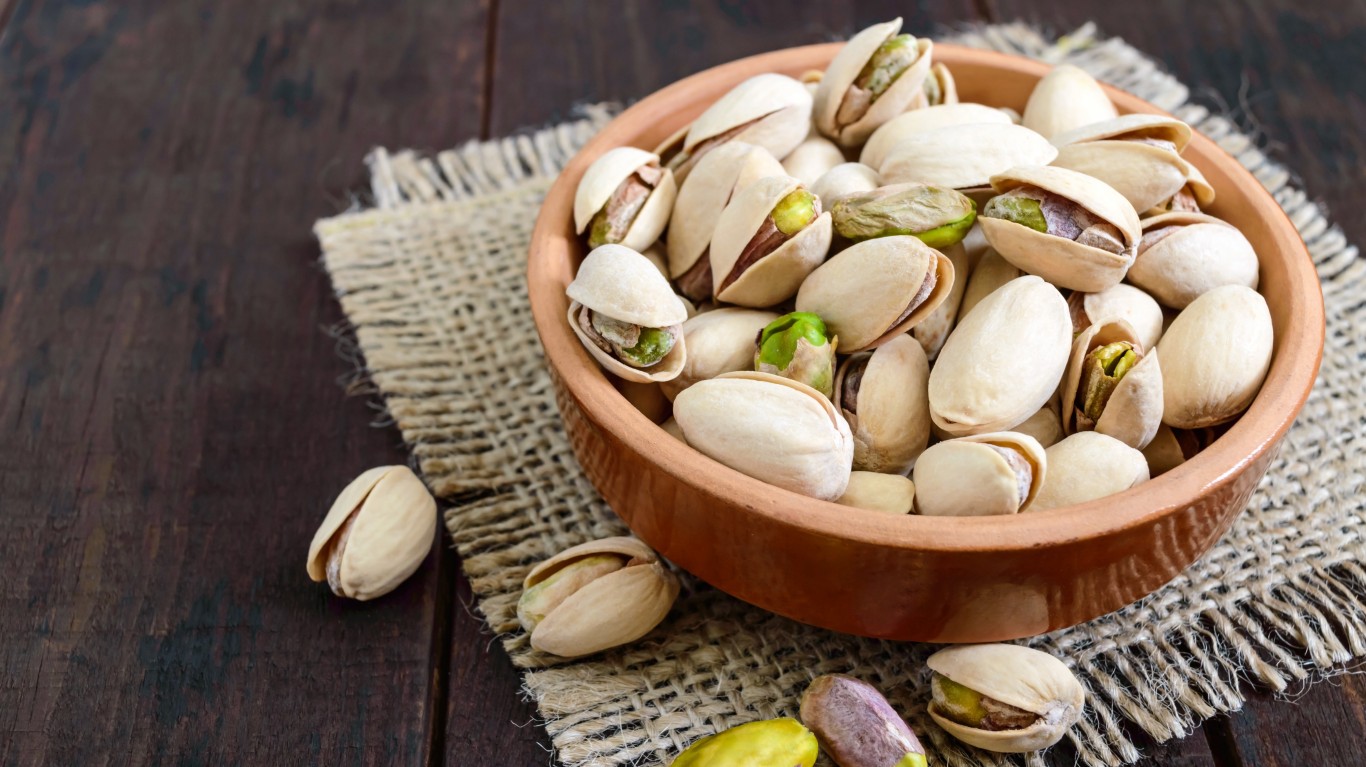
6. Snack on certain foods
Eating a healthy, balanced diet provides the body with the nutrients it needs to achieve a good night’s rest, Smith said. “People who have trouble sleeping should add tryptophan, calcium and magnesium-rich foods to their diet.” These foods include leafy vegetables, tuna, eggs, whole grains, bananas, and pistachios, according to Smith.

7. Don’t drink alcohol in the evening
Alcohol is a depressant, Laliotis explained. It wears off in the middle of the night and that uncomfortable feeling wakes people up. “The brain wave patterns of a sleeping person who drank at night are the same as [the brain wave patterns] in the middle of the day.” Some types of alcohol are also high in sugar, raising your blood sugar level and keeping you awake.
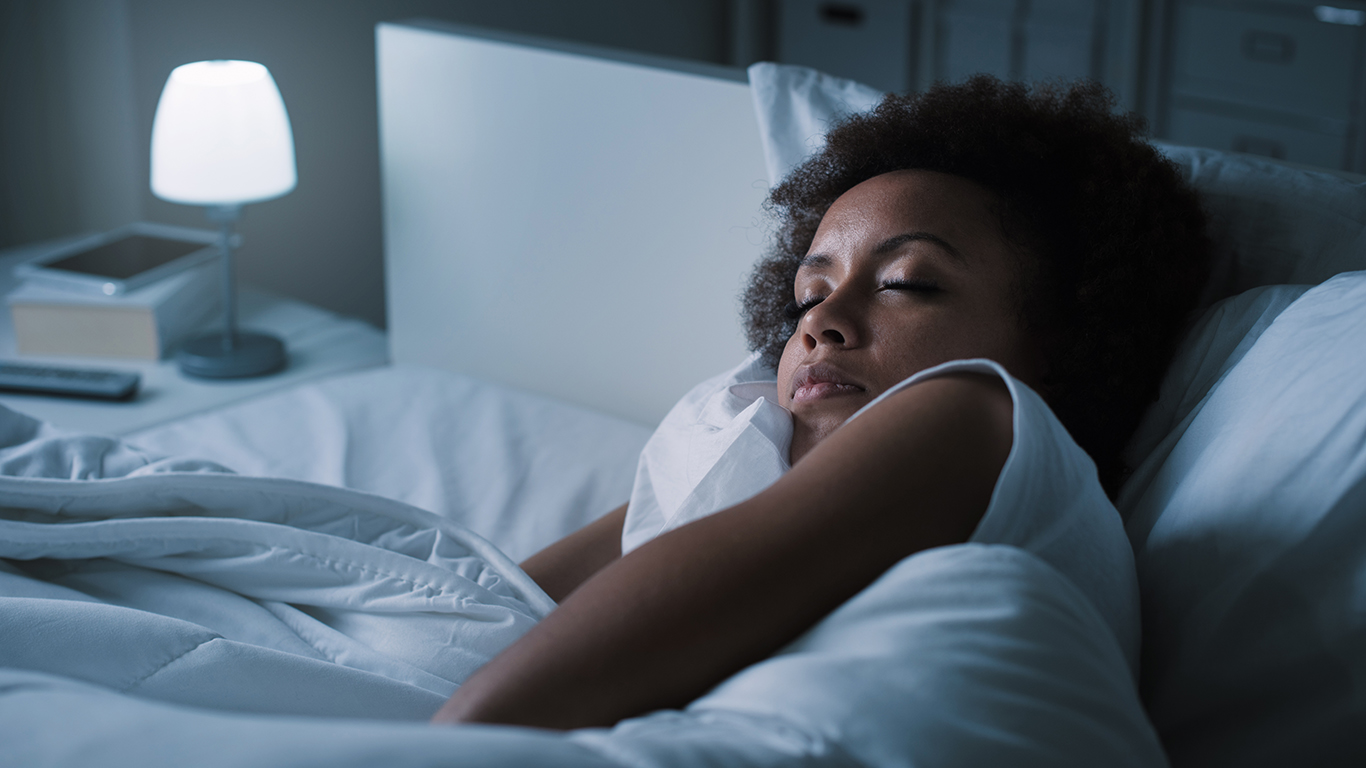
8. Keep the same bedtime routine, even on weekends
People struggling with sleep should really do their best to stick to the same bedtime hours, sleep experts say. This is how they will program their internal clock, which starts ticking in the morning. The time people go to bed is affected by the time they wake up, Shukla explained. The more bedtime hours vary from night to night, the harder it becomes for the body to fall asleep when you try to.
[in-text-ad-2]
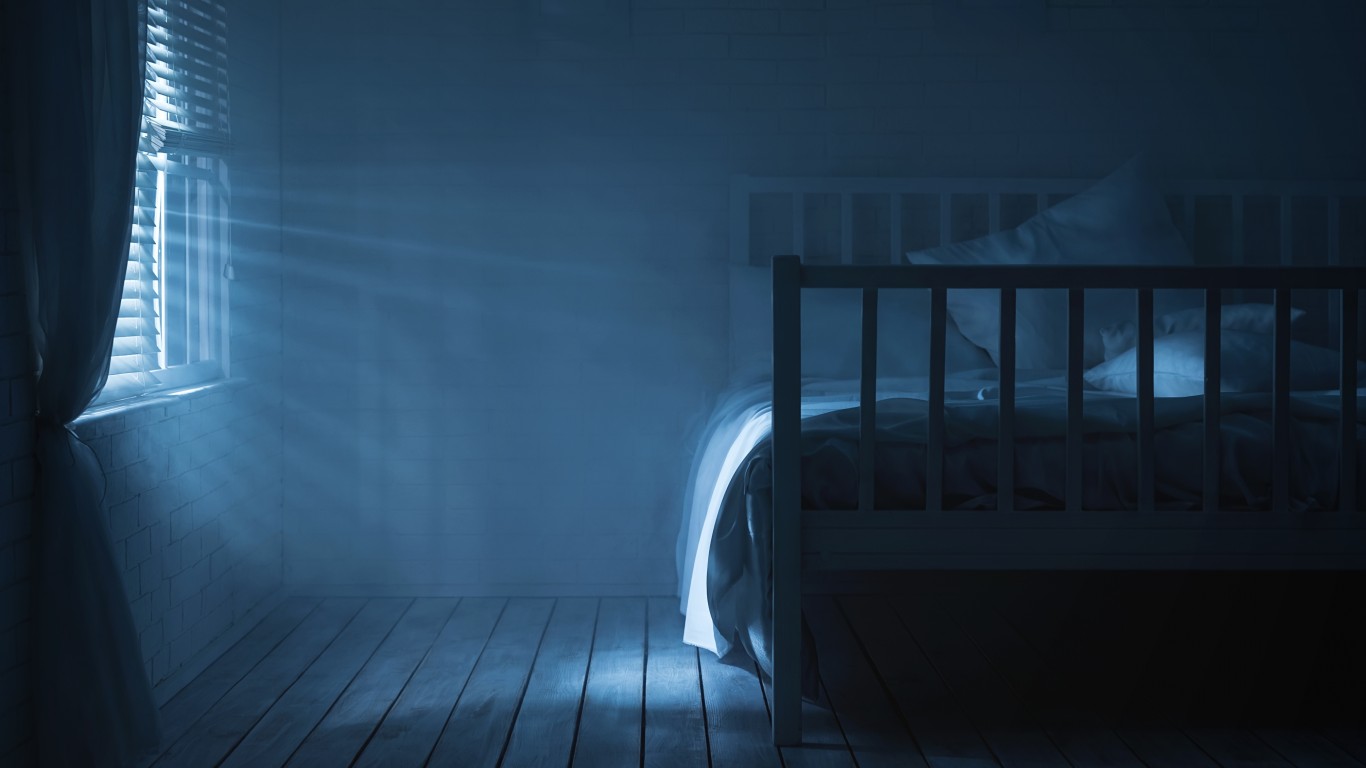
9. Make the room very dark
Circadian rhythm, which is basically the body’s internal clock that cycles between sleepiness and alertness at regular intervals, responds to light, Tal noted. When any light hits the eyes, it stimulates a nerve pathway to the brain, and wakefulness hormones are produced, he explained.
Artificial light tricks the body into slowing its production of melatonin, the hormone that promotes sleep, which can make it more difficult to fall asleep, Smith explained. “Even light from an alarm clock can have an effect on sleep quality, so it’s best to eliminate [it] as much as possible.”
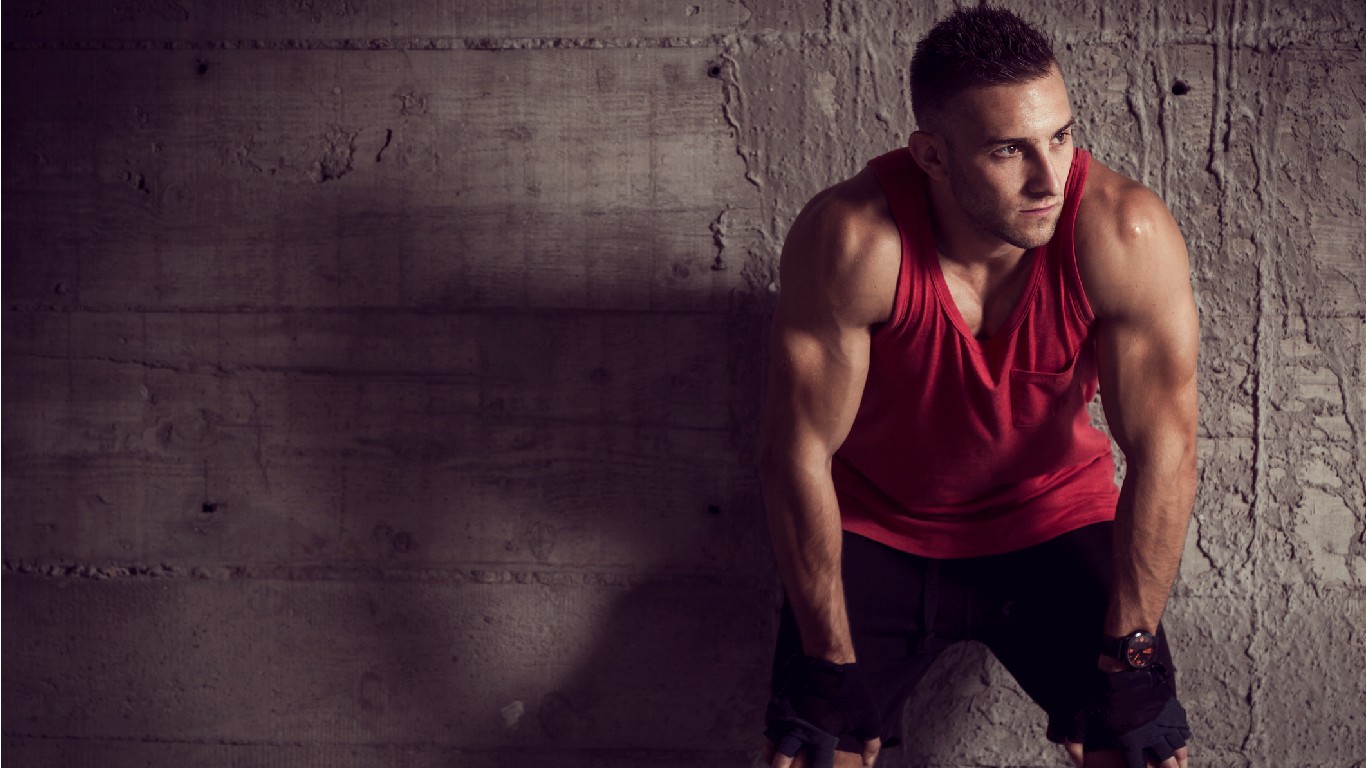
10. Try progressive muscle relaxation
Progressive muscle relaxation is a technique Tal sometimes recommends to his patients. “You go through each part of the body and you tense the muscles as you breathe in,” he said. The muscles relax as you breathe out. If your body is relaxed, you feel less anxious. And anxiety would definitely keep you up way past your bedtime.
[in-text-ad]

11. Breathe deeply
Another technique Tal recommends is diaphragmatic breathing. This kind of deep breathing, also called “abdominal breathing” or “belly breathing,” helps slow down the heartbeat and lower the blood pressure. You’re supposed to breathe in slowly through your nose and let the air in all the way down to your lower belly. Then tighten the abdominal muscles as you breathe out through the mouth.
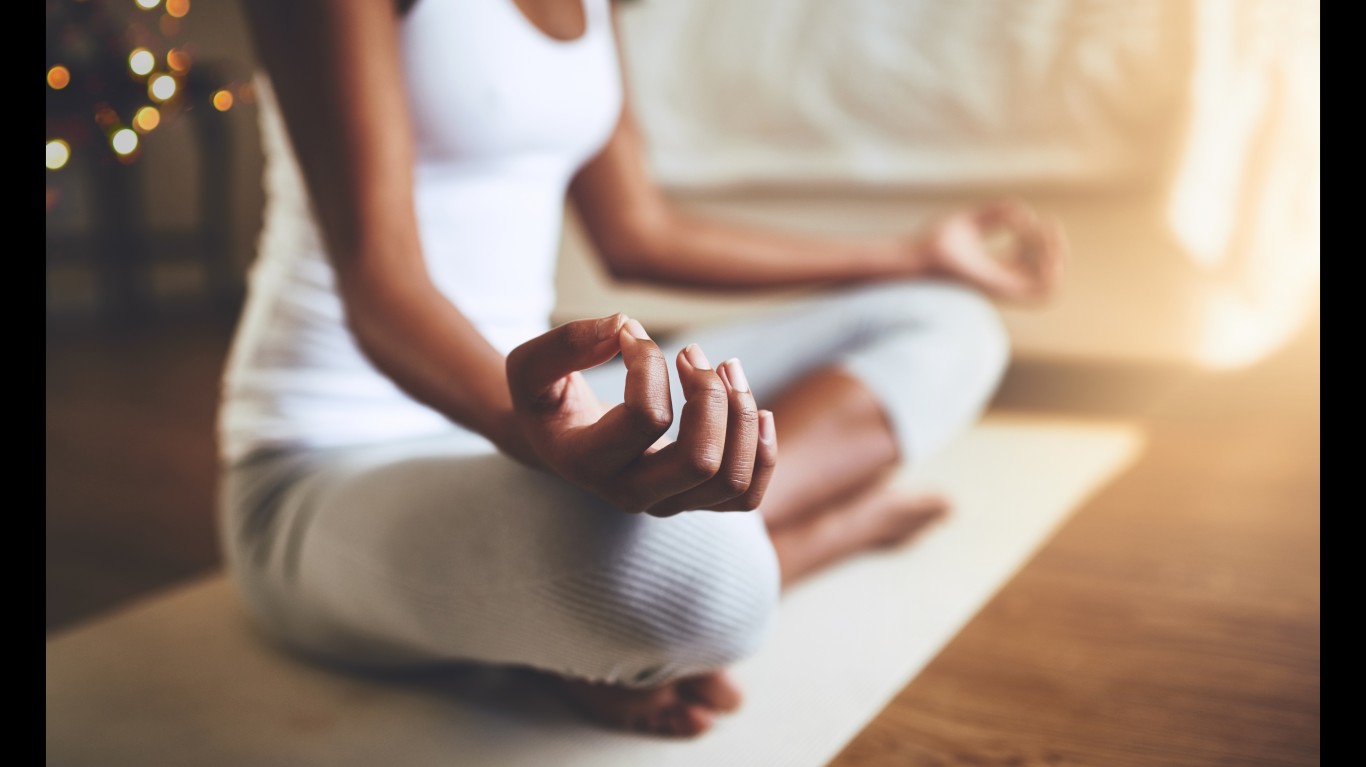
12. Consider meditating
There are many types of meditation. “Focus more on relaxation exercise rather than mindfulness,” Tal said. They will activate the parasympathetic system, a division of the nervous system, which decreases adrenaline levels and brings about a calm and relaxed feeling in the body, explained Tal.
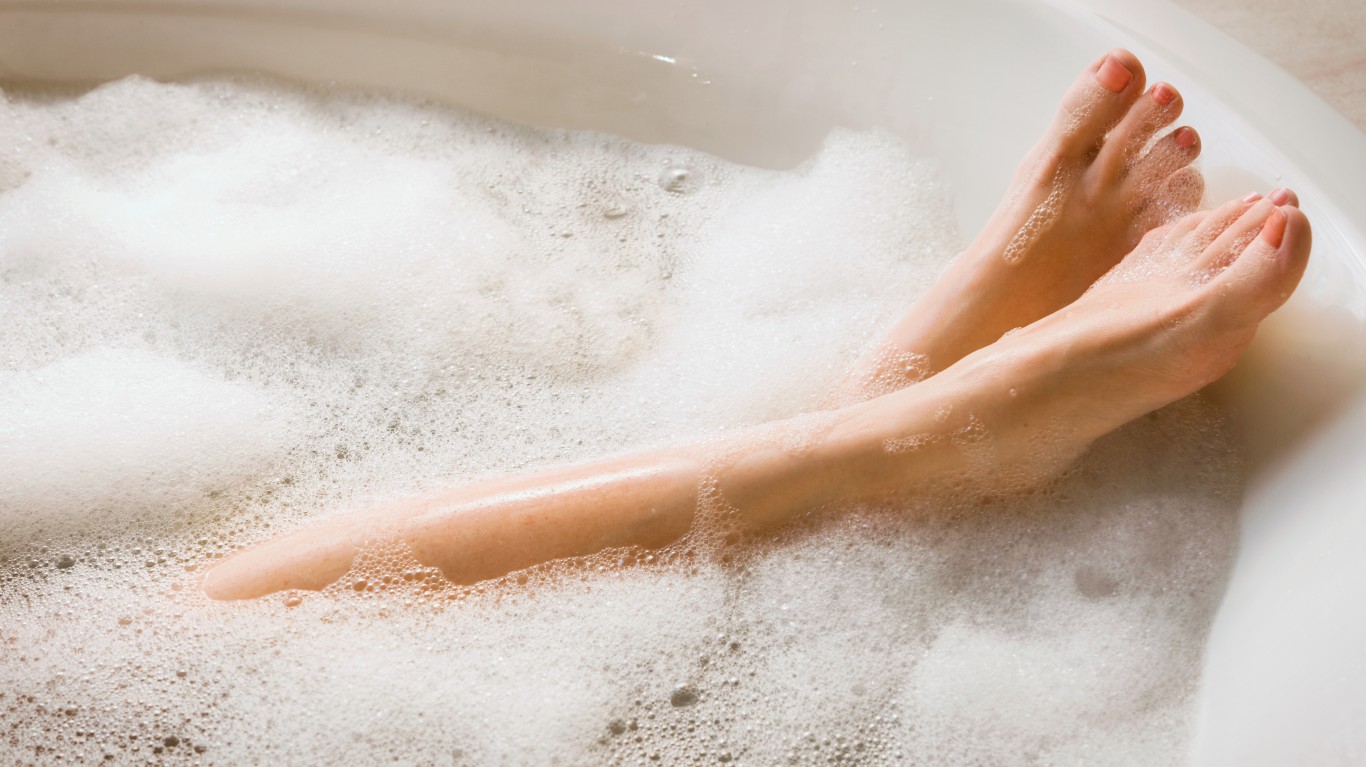
13. Take a warm bath
For one, taking a warm bath is relaxing. But it’s the getting out of it part that counts when it comes to tricking the body into going to bed, according to Tal. A body’s temperature naturally decreases at night. A warm bath would increase it. The shock of cold once you leave the bathroom mimics the body’s decrease in temperature when it’s time to go to sleep, he explained.
[in-text-ad-2]

14. Embrace natural light
In a study from Northwestern Medicine and the University of Illinois at Urbana-Champaign, researchers observed 49 people who worked during the day â 27 of them were in windowless workplaces and 22 worked near windows. They found that the latter group of people slept better at night — they received 173% more light and slept an average of 46 minutes more per night.
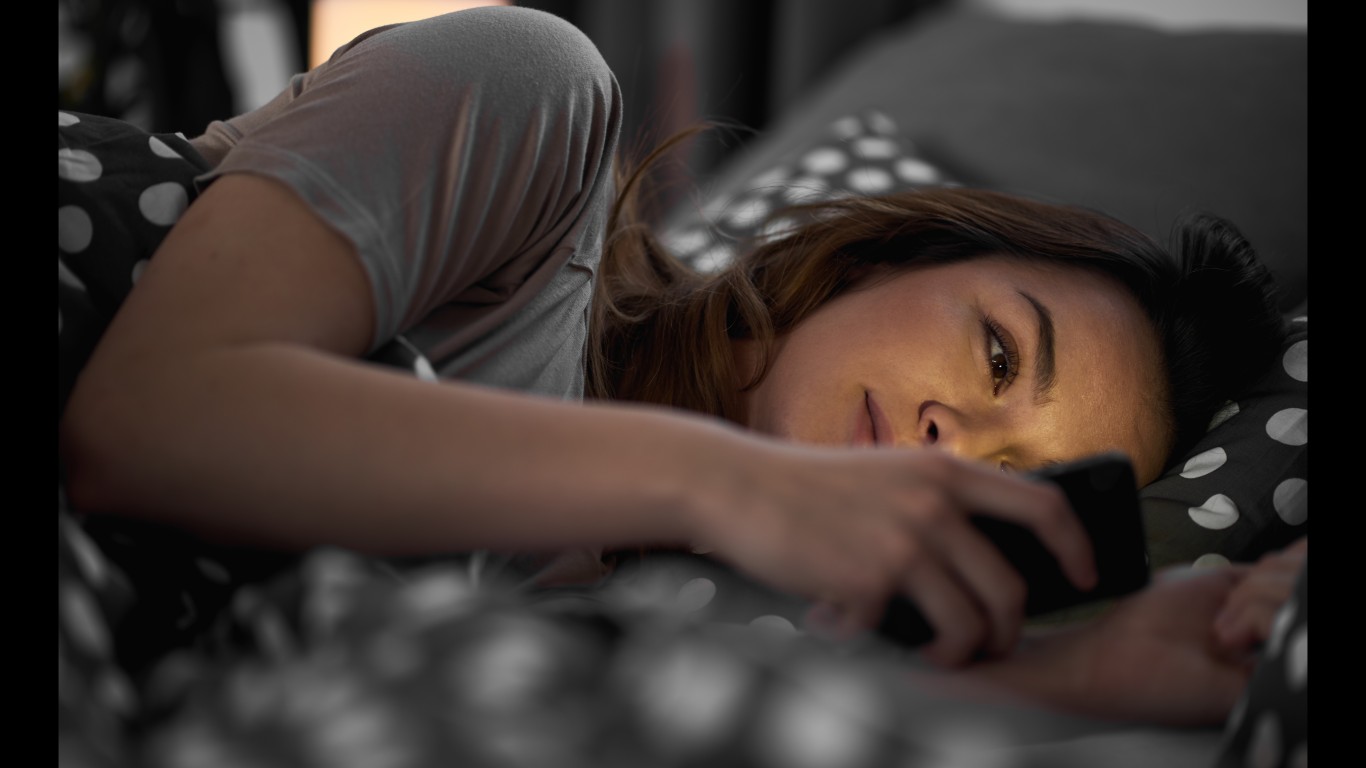
15. Ditch the electronic devices
Phones, laptops, and all kinds of devices that emit light have no place in bed, according to sleep consultants. The light that comes from the screens can block the brain’s production of melatonin, which plays a role in regulating sleep-wake cycles, Shukla said. The body needs darkness to produce this sleep hormone. Reading or listening to music are better nightly wind-down options than watching TV, Smith added.
[in-text-ad]
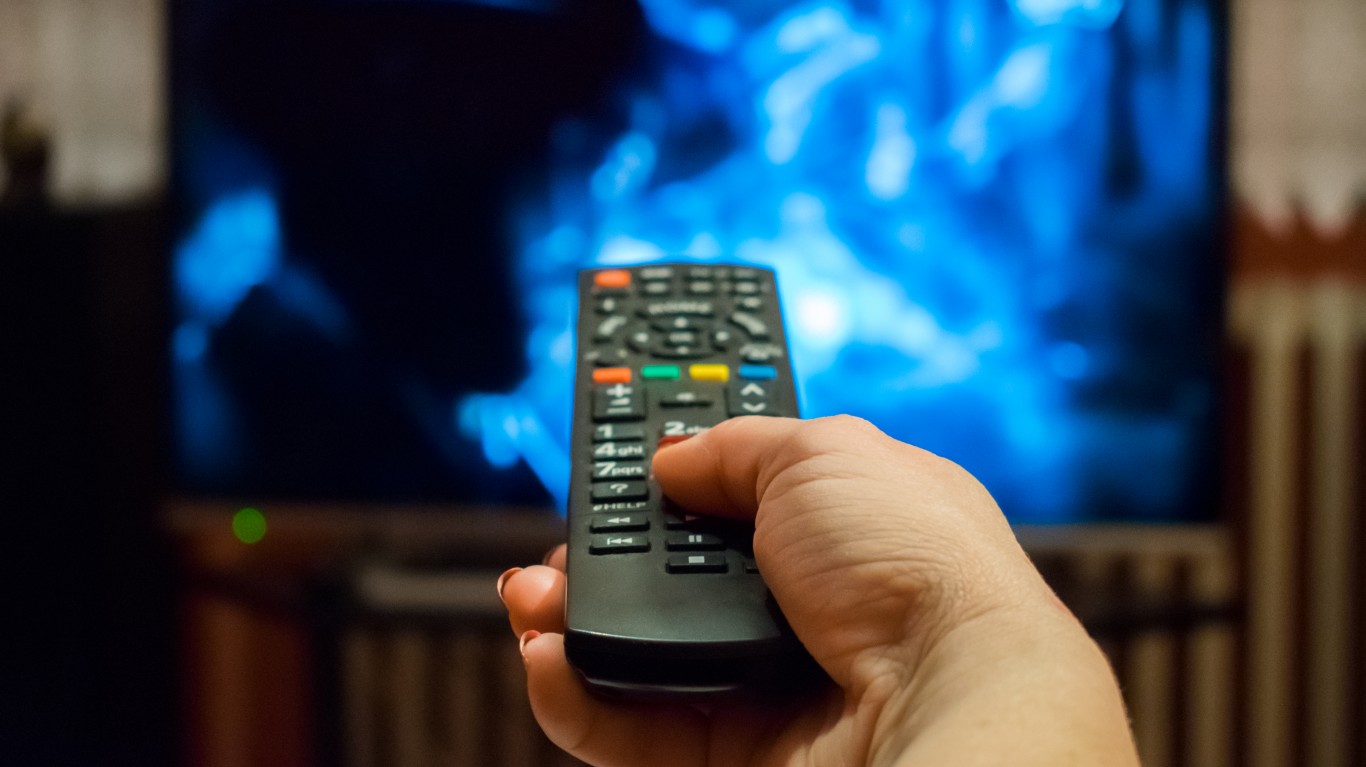
16. Avoid late-night TV
If you’re watching TV late at night, the blue light from the screen will mess up the body’s ability to produce melatonin. Another problem is the type of program being watched. Comedy late shows and movies are often more stimulating than relaxing, aren’t they?
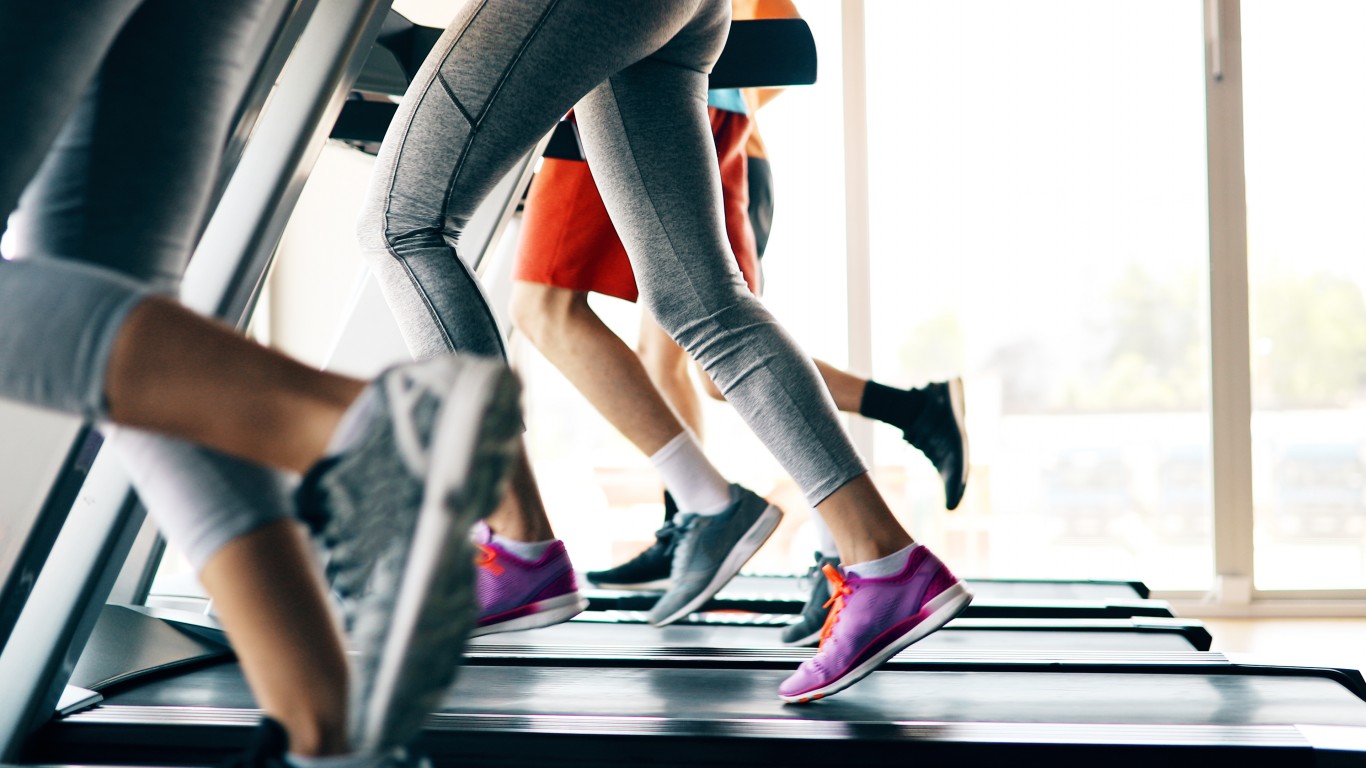
17. Exercise regularly
“Regular physical activity is part of a good sleep routine because it helps reduce stress and anxiety,” Smith said. People sleep better and are not tired during the day if they get at least the recommended 150 minutes of exercise a week, according to a study published in the Mental Health and Physical Activity journal. More than 3,000 men and women, ages 18-85, were observed. The majority of people who engaged in 150 minutes of moderate to vigorous activity a week were feeling less sleepy when they woke up, which suggests they had better sleep.
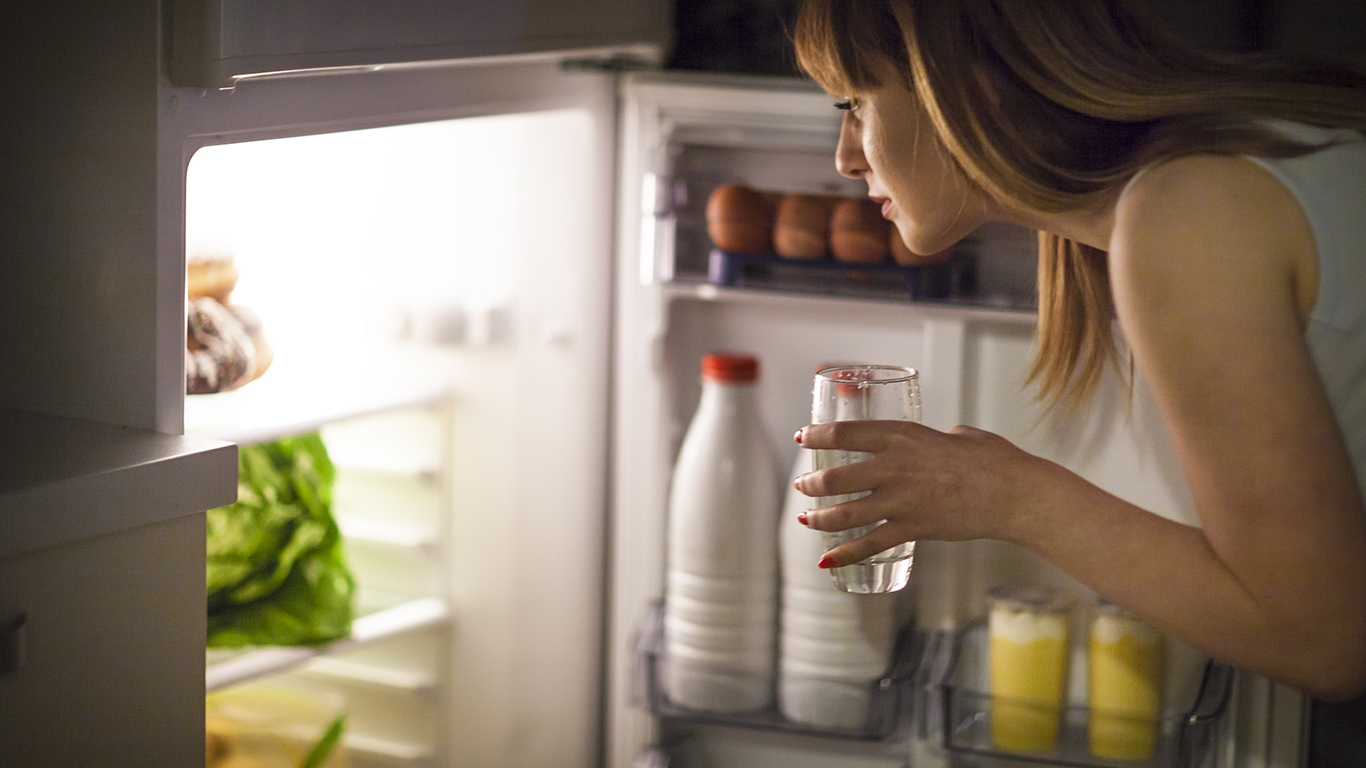
18. Don’t drink a lot of liquids at night
The amount of liquid a person should consume before bed varies for each individual. “Nearly 1 in 5 adults over age 20 wake up to go to the bathroom at least twice a night,” according to Smith. This condition is called nocturia. “If you are prone to nocturia, a good rule of thumb is to limit or avoid liquids after for 3-4 hours before bedtime.”
Also, if you drink juice or soda, the stomach will still have to digest it. And just like with food, the acid from the stomach goes into the esophagus, which could potentially give you acid reflux.
[in-text-ad-2]
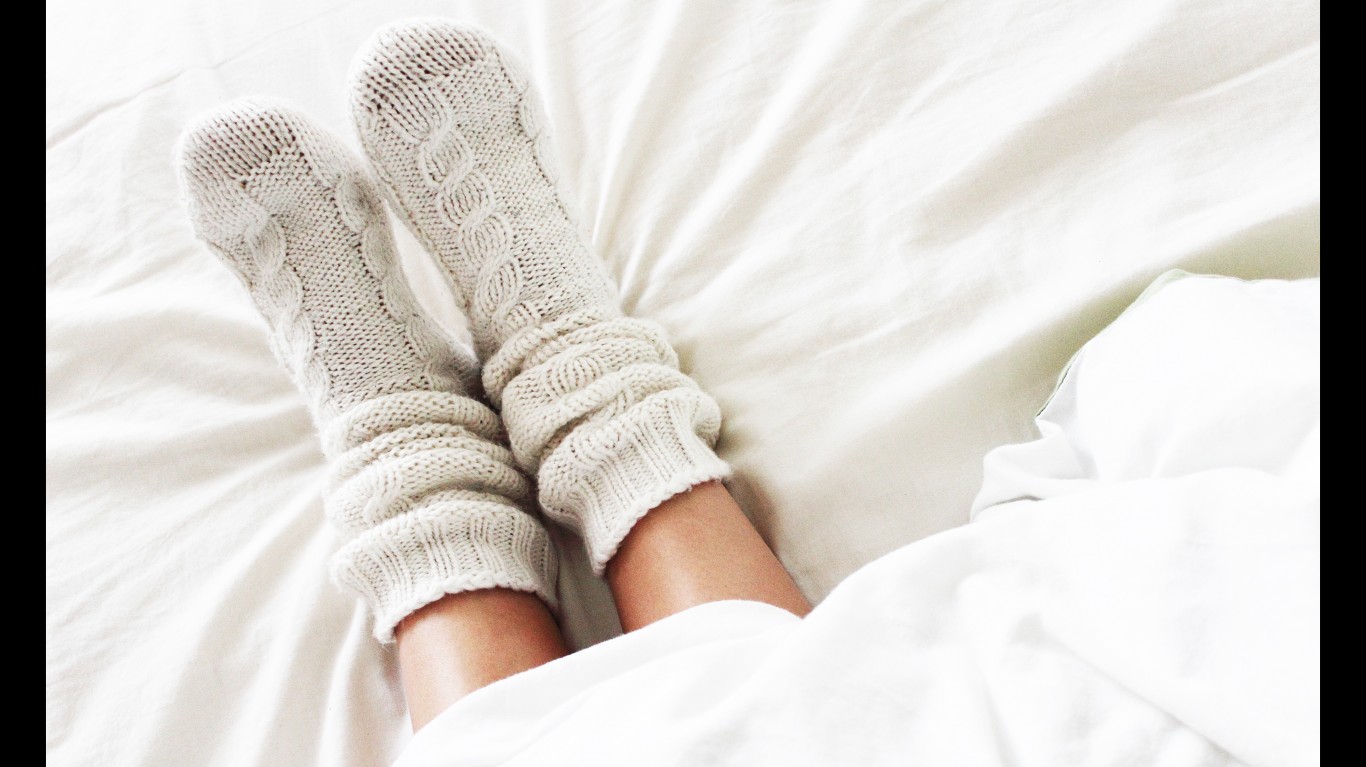
19. Keep your feet warm
Heating cold feet causes dilation of the blood vessels, which may indicate to the brain that it’s bedtime, according to the National Sleep Foundation. As the blood vessels in the hands and feet open, heat is able to pass throughout the body to prepare for sleep. Some data suggests the warmer the hands and feet are the less time is needed to fall asleep.
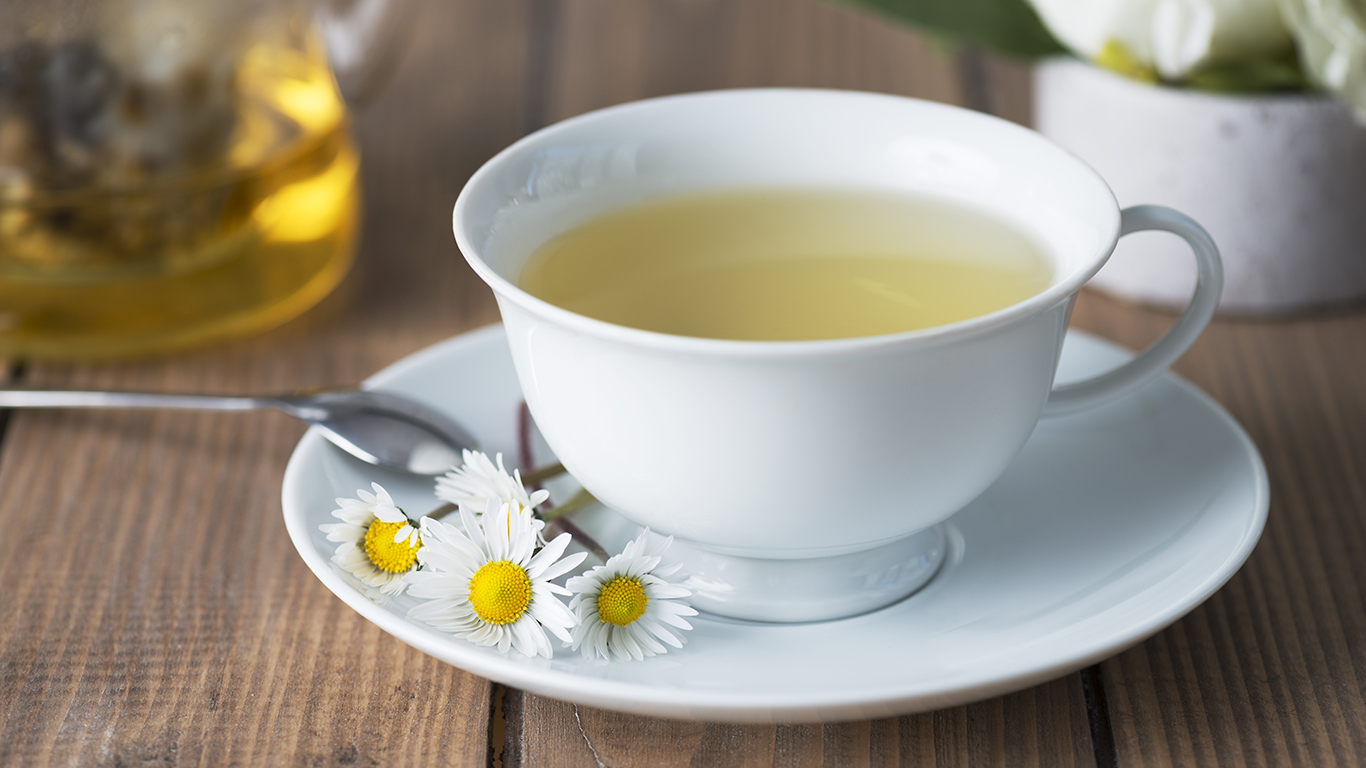
20. Have some chamomile tea
Chamomile is a medicinal herb used for its health benefits for centuries. Chamomile tea has been used to treat insomnia and induce sedation, according to research. The herb’s sedative effects may be due to the flavonoid, a compound extracted from plants, that ties to benzodiazepine receptors, which play a role in treating anxiety and sleep disorders, in the brain.
[in-text-ad]

21. Don’t use the bed for anything but sleep and sex
The bed is not your desk, and the bedroom is not your office. Don’t answer calls and emails when you should be sleeping. The bed has to have two dedicated roles in a person’s life â it should be reserved for sleep and sex, according to Laliotis. When your brain is used to doing other tasks in bed — such as watching TV — before falling asleep, it would need you to do those things to fall asleep, he explained. The body gets used to being restless in bed, preventing it from falling asleep.

22. Add more protein to your diet
A study from Purdue University suggests that protein may help with sleep. Overweight and obese adults who were on a high-protein diet to lose weight reported sleeping better after several weeks.
Credit Card Companies Are Doing Something Nuts
Credit card companies are at war. The biggest issuers are handing out free rewards and benefits to win the best customers.
It’s possible to find cards paying unlimited 1.5%, 2%, and even more today. That’s free money for qualified borrowers, and the type of thing that would be crazy to pass up. Those rewards can add up to thousands of dollars every year in free money, and include other benefits as well.
We’ve assembled some of the best credit cards for users today. Don’t miss these offers because they won’t be this good forever.
Flywheel Publishing has partnered with CardRatings for our coverage of credit card products. Flywheel Publishing and CardRatings may receive a commission from card issuers.
Thank you for reading! Have some feedback for us?
Contact the 24/7 Wall St. editorial team.
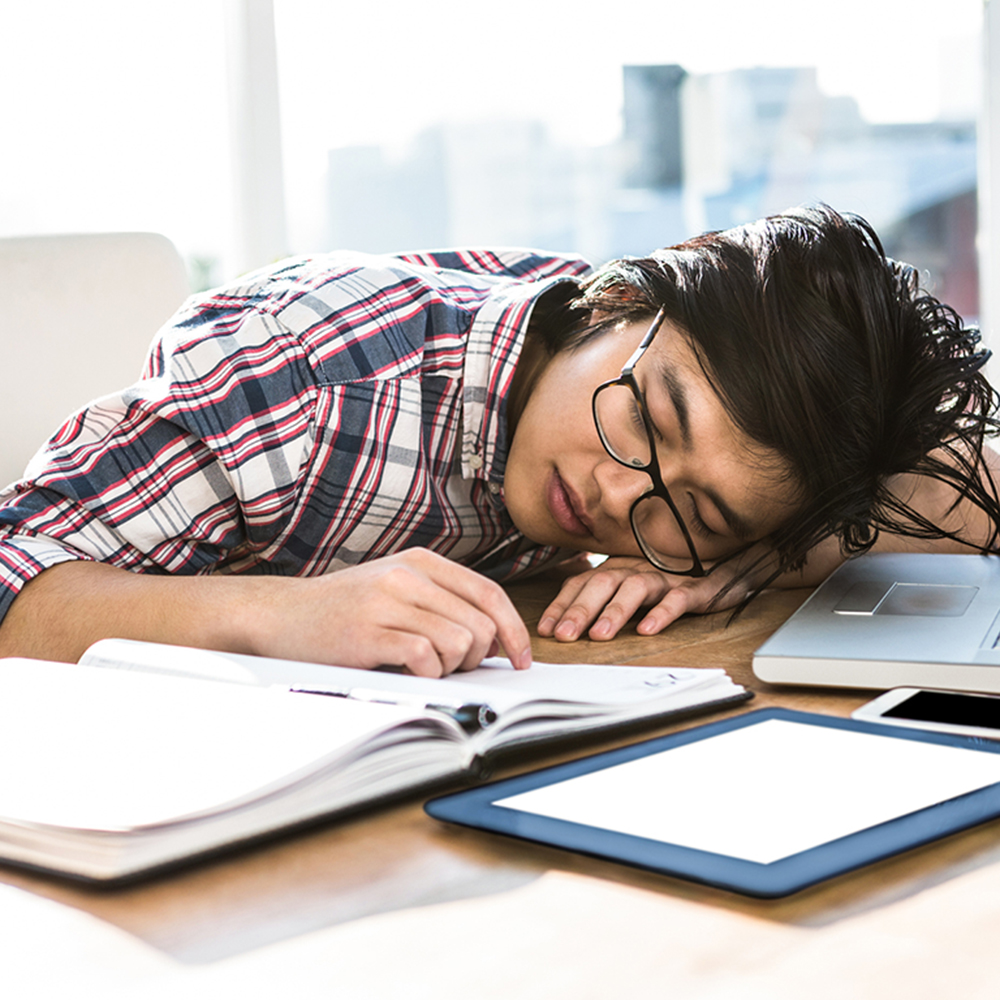 24/7 Wall St.
24/7 Wall St. 24/7 Wall St.
24/7 Wall St.